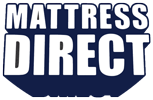
You probably remember seeing a movie or a TV show that kept you awake at night. For me that show was Unsolved Mysteries. The show would highlight various unsolved gruesome crimes then highlight the fact that whoever did the heinous act they had just reenacted was still roaming free and ready to strike again.
Perhaps there are nights you can remember lying in bed after a scary movie or television program.
What is going on in our body that makes a TV show affect us so much? Why do some people like to be scared even if it makes them lose sleep over it?
While you watch a good horror movie your heart rate and breathing speed up. Scary movies make you feel scared (go figure) and for many people watching a scary movie makes your body react the same way it would if there was something really scary there that could hurt you. You may have heard the term fight or flight, but the increase in heart rate and breathing helps your body supply more oxygen and blood flow to areas that would normally be needed to run away from something. Instead you may just need to run to get a refill of popcorn.
If you are really feeling scared your body may even tense up or even squeeze or move involuntarily that’s noradrenaline’s fault. Noradrenaline is a hormone that carries signals around the body and that tense feeling is a signal that something important is going to happen. Scary movies trick you into feeling like you are in danger so you tense up.
Scary movies can make you feel so stressed that cortisol levels in the body can rise. Cortisol is known as the stress hormone and is linked to memory loss and depression. It can also trigger bad memories because cortisol is released during trying times. Scary movies play with our fight or flight and stress management systems in our body. Adrenaline levels also spike. Scary movies make your body feel excited. The fun of watching a scary movie is being scared which may not seem to make a whole lot of sense.
However, recent research shows that dopamine gets released by your brain during a scary situation. Dopamine is generally considered a chemical the brain released to feel a sense of pleasure but it is also released during stressful and upsetting circumstances as well. This release of dopamine may be why we seek out scary movies despite the stressful feelings they may cause us to feel.
If you are not as affected by scary movies the reasons may be genetic. I no longer feel the strain of Unsolved Mysteries when I catch it on reruns. Scary movies may not cause strong reactions in every one but some research has suggested that some people may be more likely to be affected by disturbing imagery than others based on the doubling of a particular gene. If you have two copies of this particular gene you are much more likely to feel scared by scary movies.
No matter how scary a movie is you should not suffer from sleepless nights very long. Your body should be able to comfortably relax in bed most every night. If you are lying awake or feeling less than refreshed in the mornings visit Mattress Direct for a proper mattress fitting. Trained sleep specialists from Mattress Direct can keep you from feeling like a zombie or any other horror monster by ensuring you get the right mattress with characteristics that match your body type and sleep styles.

